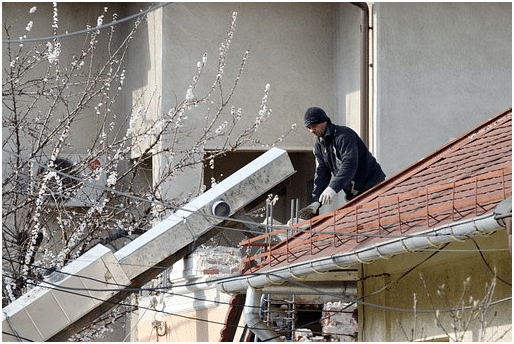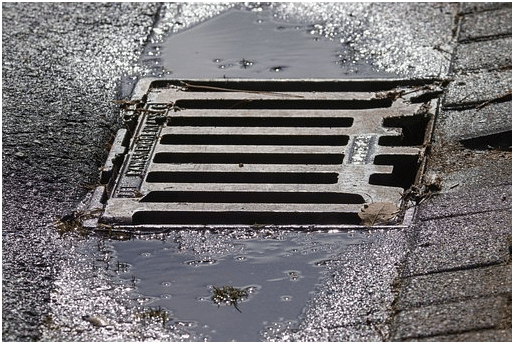Table of Contents
The key to a happy, healthy life is a good home. A place to rest your head at night, call your own and feel safe and secure. However, a disaster, like a flood or a leak, may leave your home damp. A damp home can lead to mold and mildew, causing health issues for you and your family. This is the reality for many homeowners across the country, but there are ways to prevent this. Here are eight tips to help keep your home dry as gunpowder:

1. Use Waterproofing Membranes and Coatings
Waterproofing membranes and coatings provide a barrier between the substrate and the elements, preventing moisture from entering the home and causing damage. Three types of waterproofing membranes are liquid, sheet, and tape. Liquid-applied membranes are applied with a brush or roller, while sheet-applied membranes are installed like roofing shingles. Tape-applied membranes consist of tapes applied to the surface and then sealed together.
Each type of membrane has its advantages and disadvantages. So, it’s essential to consult a professional basement waterproofing near you to determine which option is best for your needs. In addition to membranes, waterproof coatings can be applied to surfaces such as concrete foundations and basement floors to protect against water damage.
2. Install a Sump Pump and Drainage System
A sump pump is a device that removes water from a flooded basement or crawlspace. The water is pumped through pipes and the drainage system, which carries it away from the house. Sump pumps are usually installed in the lowest part of the house, where water tends to collect.

There are two types of sump pumps: pedestal and submersible. Pedestal pumps sit on top of the ground and have a motor that drives an impeller (a kind of propeller). Submersible pumps are mounted below the water’s surface and have a motor sealed in an oil-filled housing.
3. Seal Your Basement and Foundation Walls
One of the most important is to seal your basement and foundation walls. Sealing these walls will keep water from entering your home through cracks and crevices. It will also help to insulate your home, keeping it warm in the winter and cool in the summer.
There are several ways to seal your basement and foundation walls: waterproofing paint, sealant tape, or caulk. All of these products are available at hardware stores and home improvement centers. Read the instructions carefully before applying them, and follow all safety precautions.
4. Install Proper Gutters and Eavestroughs
Installing proper gutters and eavestroughs is one of the most critical steps to protect your home from water damage. Gutters direct rainwater away from your roof and foundation, while eaves troughs channel the water away from the walls of your house. You could face significant repair bills if either system is not working correctly.
There are a few things to keep in mind when installing gutters and eavestroughs:
- Ensure the gutter system is pitched correctly, so the water flows towards the downspout. If it’s not appropriately pitched, the water will back up and cause leaks.
- The gutter system should be securely attached to the fascia board (the vertical board at the roof’s edge) with screws or nails. Do not use staples, as they will pull out over time.
- The eaves trough should be installed so that it slopes downwards towards the downspout and should be connected tightly to the fascia board and wall siding.
- Ensure no obstructions (e.g., trees, bushes, wires) prevent water from flowing freely through the gutter system. If necessary, trim back foliage or reroute wires.
- Keep the gutters and eaves troughs clean by removing leaves and debris regularly. Clogged gutters can cause water to overflow and damage your roof and foundation.
5. Properly Grade Your Property
One of the most important things you can do to help keep your home dry as gunpowder is to grade your property correctly. When rain or snow melt runs off your roof and driveway and pools on your property, it will eventually make its way into your basement or crawlspace if the ground isn’t pitched correctly. A good rule of thumb is to slope the ground away from your house by at least 6 inches for every 10 feet of distance.
There are a few ways to grade your property: you can do it yourself with a shovel and rake, hire a professional landscaper, or have a water drainage company come in and install an underground drainage system. Whichever route you choose, take care of this important task before the bad weather hits.
6. Install Window Wells and Covers
Window wells are an often-overlooked aspect of moisture control in the home. They provide a space for water to drain away from foundation walls and windows, preventing water damage and potential flooding.
Along with installing window wells, be sure to add covers to them. This will prevent leaves and other debris from collecting in the well and blocking drainage, as well as protect against rainfall and snowmelt entering the well and potentially seeping into your home.
7. Use Dehumidifiers to Keep the Air Dry
Dehumidifiers are machines that extract water from the air. This is useful for several reasons, including keeping your home dry as gunpowder. They can also prevent mold and mildew buildup and make the air more comfortable.
Some dehumidifiers can be attached to your HVAC system for whole-house use, while others can be used in individual rooms or areas. Consider investing in a dehumidifier for your basement or other damp areas of the home to help prevent moisture-related damage.
8. Inspect Your Property Regularly for Leaks and Damage
Regularly inspecting your property for leaks and damage is another critical step in keeping your home dry as gunpowder. Look for water stains or dampness on walls and ceilings and any cracks or holes that could let in moisture.
If you spot a leak or damage, addressing it as soon as possible is essential to prevent further issues. This may involve repairing the source of the leak or applying waterproofing materials. Fixing these issues promptly can prevent further damage and keep your home dry.
Taking the necessary steps to keep your home dry, as gunpowder protects your property from water damage and flooding. Regularly inspecting your property for leaks and damage is an integral part of this process, so be sure to do so frequently. If you encounter any problems, don’t hesitate to fix them immediately. Keeping your home dry as gunpowder will help ensure that it lasts many years.